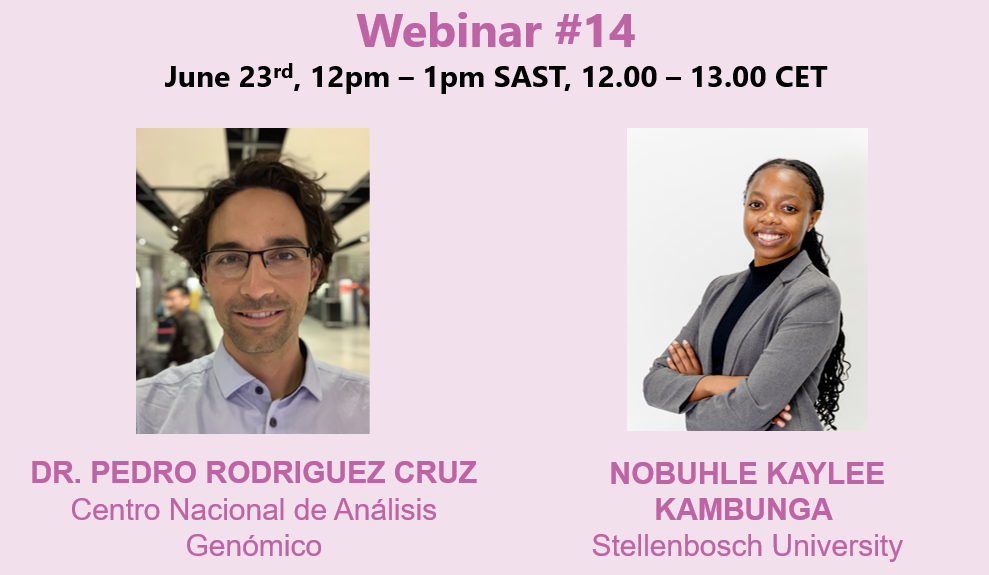Webinar 14: June 23rd, 12.00-13.00 (SAST); 12.00-13.00 (CET)
First talk:- Understanding neuromuscular disorders in Senegal: insights from clinical and population studies
Speaker: Dr. Pedro Rodriguez Cruz
Abstract: Neuromuscular disorders (NMDs) are under-diagnosed in sub-Saharan Africa and their underlying genetic causes are largely unknown. This is mainly due to a lack of infrastructure and access to sophisticated diagnostic pipelines such as muscle biopsy and genetic testing, but also to social and economic factors that prevent patients from accessing healthcare. Lack of precise genetic diagnosis often leads to poor medical care and reproductive counselling, as well as a lack of awareness. Furthermore, the under-representation of ethnically diverse populations in human genetic studies challenges our ability to understand the genetic architecture of NMDs across populations. Given that Africa is the most genetically diverse continent, it is possible that some of the genetic associations identified in populations of European ancestry are not necessarily generalisable to Africans. This could have implications for diagnostic tests being less accurate for African populations, but also for future therapies not being inclusive. With the African population set to double to 2.5 billion by 2050, there is a need to improve our understanding of NMDs on the African continent. Here, we report on our recent experience in building a collaborative clinical genomics partnership for NMDs between Barcelona and Dakar in Senegal, West Africa. We use genomics and cloud services to provide NMD patients with high-precision genetic diagnoses. The benefits range from increasing the number of patients with accurate diagnoses to providing personalised clinical management plans and genetic counselling. We use that insight to increase diversity and novel pathogenic variant knowledge in neuromuscular genetics and flag potential epidemiological differences between West African and European populations. Linking with available resources and networks helps to build capacity and generate local expertise, in line with recent calls for global action on rare diseases in Africa. We found positive patient attitudes towards genetic testing and significant local involvement in advocacy and public awareness activities for NMDs
Second talk:- Understanding the effects of informal housing on the microbiome and the spread of antimicrobial resistance
Speaker: Nobuhle Kaylee Kambunga
Abstract: Global estimates by the World Health Organization (WHO) suggest that over 100 million children under the age of five are stunted. There is some evidence that stunting may be more prevalent among children living in informal settlement due to unsanitary conditions. These unsanitary conditions have been shown to favour the spread of antimicrobial resistance genes (ARGs), particularly among bacteria of the Enterobacteriaceae family. Given the intersection of informal settlements, stunting, and ARGs, this study aimed to investigate these associations using the gut microbiome as a proxy for health. To achieve this, 16S rRNA gene-based sequencing and quantitative PCR targeting ARG markers were used. We found differences in the microbial composition, with non-stunted living in formal housing exhibiting higher microbial diversity. Furthermore, a statistically significant difference (p=0.034) was found between microbiomes of stunted and non-stunted children. Notably, ARGs including blaAMPC and tetO which are resistant to antibiotics commonly prescribed to children with severe malnutrition were more abundant in stunted children living in informal settlements. These findings highlight the role of informal housing in exacerbating stunting and the importance of multiple targeted interventions to curb the prevalence of stunting in these marginalised communities.
Contact Us here to receive notifications about upcoming Genomics for Health in Africa webinars.

